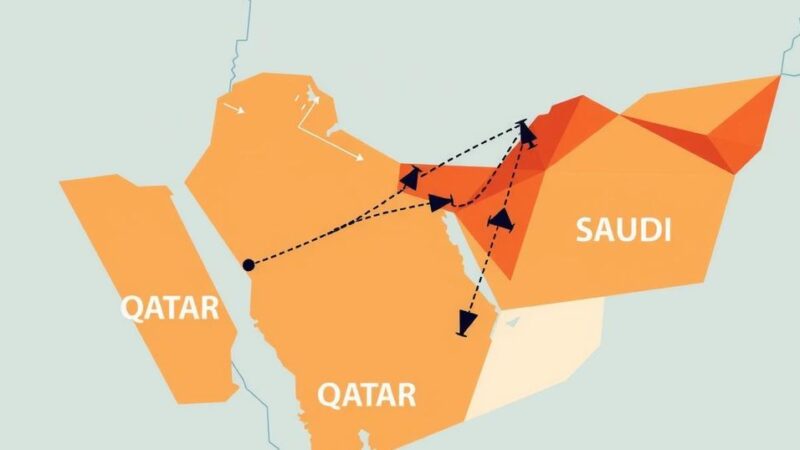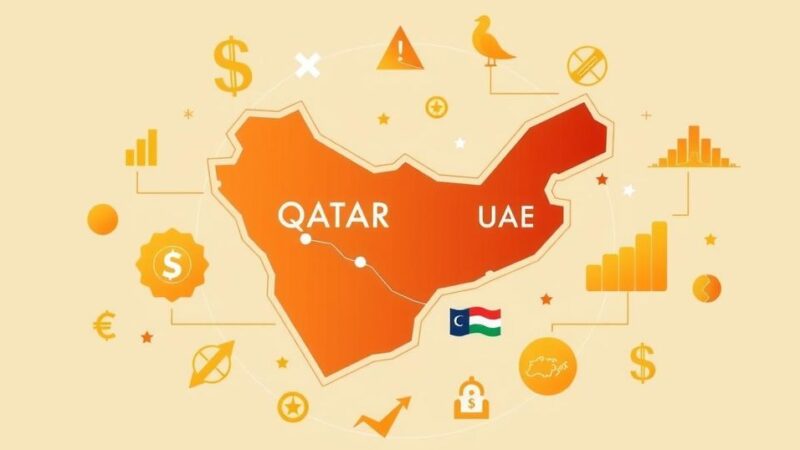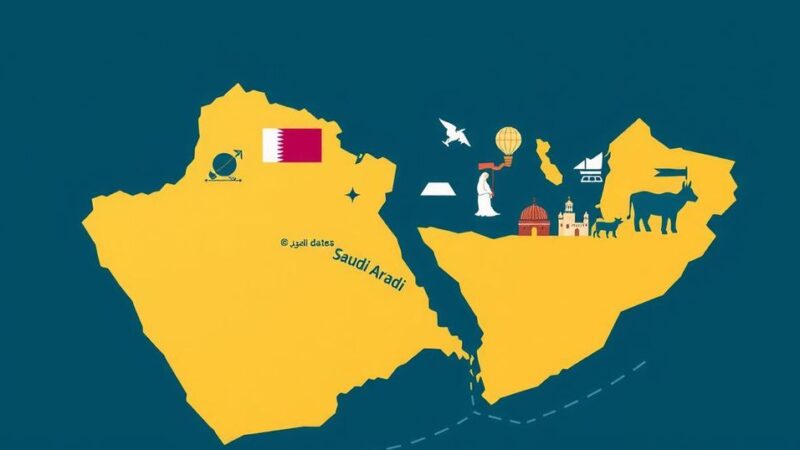Sudan faces a humanitarian crisis as over 30 million people require aid amid a brutal civil war. Trump’s freeze on foreign aid has led to the closure of communal kitchens, increasing the risk of famine. With diminished support, key initiatives struggle to deliver essential supplies to displaced populations, jeopardizing lives. Immediate funding is crucial to avert disaster, as many are at risk of starvation in the coming weeks.
The humanitarian situation in Sudan, marked by the devastation of a two-year civil war, is dire as over 30 million individuals require immediate aid. President Donald Trump’s recent 90-day suspension of all foreign aid exacerbates this crisis, severely impacting organizations reliant on U.S. funding, particularly for communal kitchens that provide necessities to vulnerable populations. The suspension has led to the closure of roughly 75% of these kitchens, endangering lives amid rampant food insecurity.
Abuzar Osman Suliman, coordinator for Sudan’s Emergency Response Rooms, highlighted the grim reality: without American funding, “a lot of people will die because of hunger.” With operational costs soaring to $10,000 to sustain a kitchen serving 250 families for two weeks, urgency intensifies as the window for intervention narrows to 10 to 20 days before casualties begin to rise.
Trump’s executive order, signed on January 20, halted foreign assistance, undermining American-funded programs globally. Secretary of State Marco Rubio attempted to reduce the fallout by exempting emergency aid and lifesaving initiatives, yet officials noted that funding and staffing for essential programs had not resumed.
In Darfur’s Zamzam camp, home to over a million displaced individuals, all 40 community kitchens now lie dormant due to this funding cut. Intense fighting between the Sudanese Armed Forces and the Rapid Support Forces has rendered aid deliveries unattainable, with a famine declared in August. People are now forced to decide between enduring starvation in the camp or risking their lives venturing into perilous areas.
Famine has now affected multiple regions of Sudan, with projections indicating an impending deterioration due to ongoing conflict and disrupted access to assistance. In Khartoum, battles impede aid deliveries, with the World Food Program managing only its first shipment in December, relying on the now-defunct ERRs for distribution.
Before the aid freeze, ERRs operated 742 kitchens serving approximately 816,000 individuals, forcing an alarming closure of 80% of these facilities. The grassroots kitchens, characterized by neutral and inclusive leadership, operate locally under the guidance of diverse volunteers, ranging from housewives to professionals.
Hajooj Kuka, an ERR communications officer, stressed the immediate need for funding to avert famine in the city, while lacking knowledge regarding the significance of USAID until the funds disappeared. The cancellation of a crucial $50,000 grant by Catholic Relief Services further underscores the urgent financial crisis.
The ERRs required approximately $20 million annually to sustain operations, yet their vulnerability to U.S. funding cuts became evident once aid cessation occurred. Local purchasing practices of these grassroots kitchens propelled their dependence on continuous cash flow, without which provisions could not be procured.
Andrea Tracy, a former USAID official, remarked on the complexity of the exemptions granted, indicating confusion regarding their implementation. Larger organizations may have the means to navigate these intricacies while smaller groups lack the capacity for emergency responses. A federal judge recently paused orders affecting USAID staff, yet the efficacy of the agency’s operations remains uncertain.
Kuka is appealing to other potential donors to fill existing funding gaps, stressing urgency as resources will deplete imminently. “After a month, it will be completely done,” he asserted, displaying the catastrophic ramifications of diminishing aid support.
The disruption of U.S. foreign aid significantly impacts Sudan, as vital humanitarian operations face imminent closures due to funding cuts instigated by President Trump’s executive order. The shutdown of community kitchens and other essential services endangers millions of lives, with leaders emphasizing the urgent need for reinstated support to avert an escalating famine. The situation underscores the critical intersection of international policy and humanitarian resilience amidst protracted conflict.
Original Source: www.nbcnews.com






